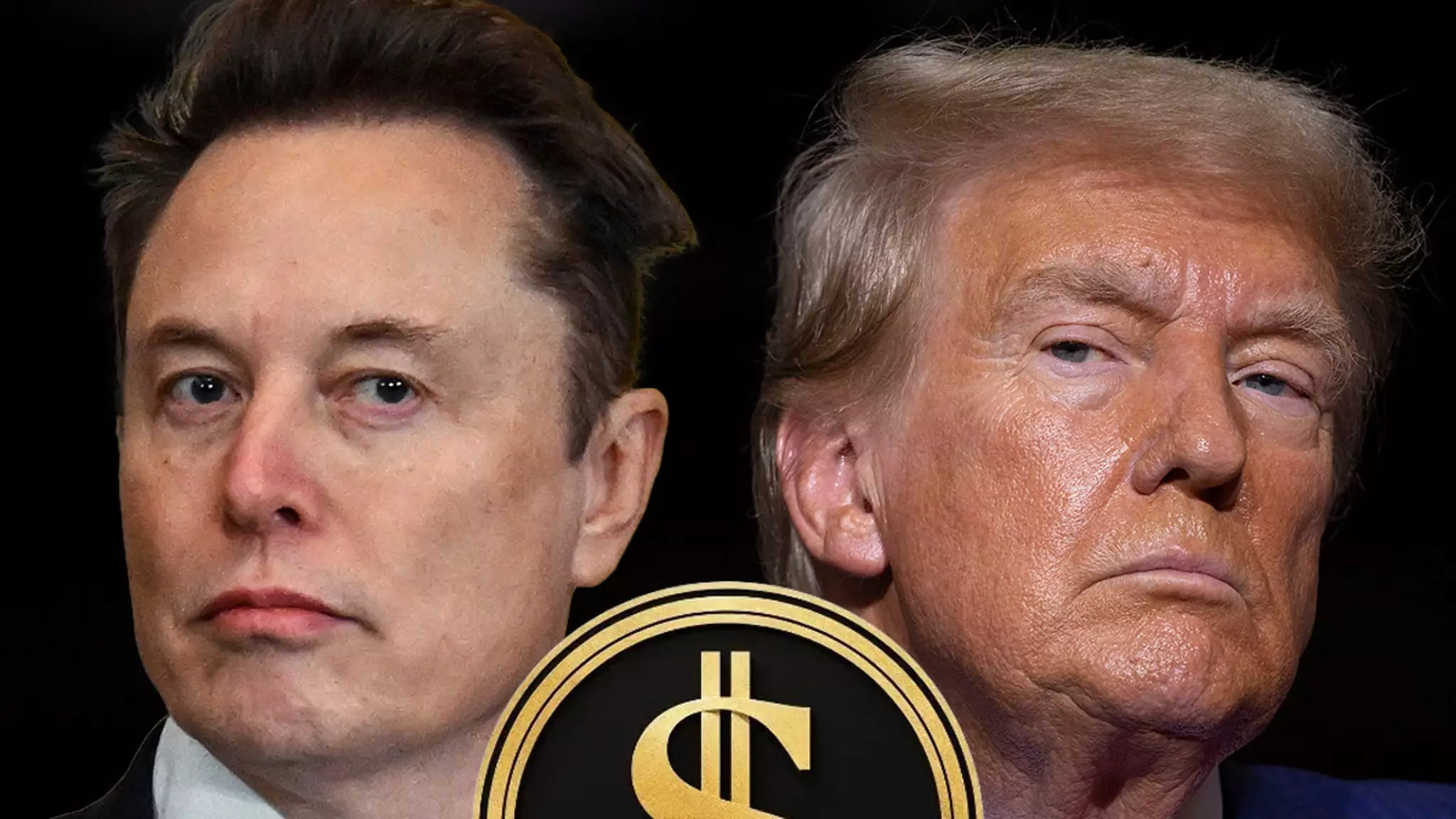As whispers of Elon Musk’s departure from his role as a senior advisor in President Trump’s administration circulate, the implications of this change extend far beyond the corridors of Washington. Musk, known for his audacious ventures with Tesla and SpaceX, has occupied a unique position within the government that blurs the lines between business innovation and public policy. His potential exit signifies not only a personal choice but also a strategic pivot for the Trump administration. The relationship has been mutually beneficial, yet fraught with tensions that underline the complexities of integrating entrepreneurial vision into the political realm.
The Duality of Praise and Frustration
Recent reports outline a juxtaposition of admiration and frustration within the Trump Cabinet regarding Musk’s contributions. While President Trump lauds Musk’s impact, suggesting he has been “amazing” and pivotal in driving governmental efficiency through projects like the Department of Government Efficiency (DOGE), the sentiments are not unanimously positive. There are significant voices within the administration that perceive Musk as a political liability, especially given his recent struggles in political initiatives, such as the failed push to elect a conservative judge in Wisconsin after investing over $20 million. Such missteps highlight a growing unease among Trump’s inner circle about aligning closely with a figure as unpredictable and publicly scrutinized as Musk.
The Burden of a Billionaire
The sheer volume of Musk’s commitments outside the political sphere cannot be ignored. As CEO of two major companies, he faces ongoing challenges, including public protests against Tesla’s practices and issues surrounding government contracts linked to SpaceX. His focus on these pressing responsibilities may compel him to reassess his role in providing political counsel. It’s noteworthy that Musk’s special government employee status, which grants him certain ethical exemptions, will soon expire. This expiration adds another layer of complexity, urging the administration to contemplate a future without Musk’s direct influence.
Future Roles: Formal or Informal?
Despite indications that Musk may soon step back from his advisory role, reports suggest that the Trump administration is considering an informal transition for him. This evolution could allow Musk to retain a presence in the political landscape while prioritizing his corporate commitments. The very notion of maintaining a link to a high-profile figure such as Musk illustrates the administration’s desire to balance innovative thought leadership with practical governance. However, this strategy raises questions about the effectiveness of informal advisory roles and the potential for conflicts of interest that may arise.
The Broader Implications for Innovative Governance
Musk’s journey through the White House reflects a broader trend in contemporary governance where unconventional figures are increasingly becoming integrally involved in shaping policy. His impending departure may serve as a pivotal moment, compelling both the Trump administration and President-elect Biden to reassess how they incorporate outside innovators into governance structures. As Musk potentially prepares to exit, it remains to be seen how this evolution will impact the future landscape of American politics and the ongoing interplay between business and governance. The effects could ripple beyond individual roles, prompting broader discussions on the ethical frameworks governing such collaborations.

